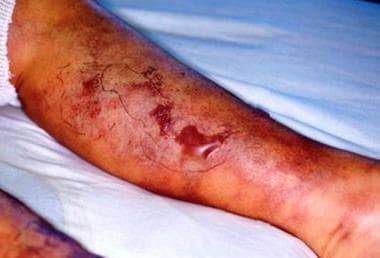Understanding Chronic Kidney Disease: Causes, Symptoms, Treatment, and Prevention
Introduction:
Chronic Kidney Disease (CKD) is a progressive condition wherein the kidneys gradually lose their function over time. This disease affects millions of people worldwide and can lead to severe complications if not managed properly. Understanding its causes, symptoms, treatment options, and prevention strategies is crucial for both patients and healthcare professionals. In this comprehensive guide, we delve into the various aspects of CKD to provide clarity and insights into this prevalent health issue.
Section 1: Understanding Chronic Kidney Disease
1.1 What is Chronic Kidney Disease?
Chronic Kidney Disease is characterized by the gradual loss of kidney function over a period of months or years. The kidneys play a vital role in filtering waste products and excess fluids from the blood, regulating blood pressure, and producing hormones that control various bodily functions. When the kidneys are damaged, these functions are impaired, leading to a buildup of toxins and fluids in the body.
1.2 Stages of CKD:
CKD is classified into five stages based on the severity of kidney damage and the level of kidney function, as measured by the glomerular filtration rate (GFR). The stages range from mild (Stage 1) to severe (Stage 5), also known as end-stage renal disease (ESRD). Each stage requires different management approaches, with advanced stages often necessitating dialysis or kidney transplantation.
Section 2: Causes and Risk Factors of CKD
2.1 Diabetes Mellitus:
Diabetes Mellitus, particularly Type 2 diabetes, is one of the leading causes of CKD. High blood sugar levels can damage the small blood vessels in the kidneys, impairing their function over time. Proper management of diabetes through medication, diet, and lifestyle changes is essential in preventing or delaying the progression of CKD in diabetic patients.
2.2 Hypertension:
Hypertension, or high blood pressure, is another significant risk factor for CKD. Persistent high blood pressure can damage the blood vessels in the kidneys, reducing their ability to filter waste products effectively. Controlling blood pressure through medication, dietary modifications, and regular exercise can help mitigate the risk of CKD development or progression.
2.3 Other Causes and Risk Factors:
In addition to diabetes and hypertension, CKD can also be caused by other conditions such as glomerulonephritis, polycystic kidney disease, kidney infections, and autoimmune disorders. Certain lifestyle factors like smoking, obesity, and a high-sodium diet can also increase the risk of developing CKD. Genetic predisposition and family history may also play a role in some cases.
Section 3: Symptoms and Complications of CKD
3.1 Early Symptoms:
In the early stages of CKD, patients may not experience any noticeable symptoms. As the disease progresses, however, symptoms may start to manifest, including fatigue, swelling in the legs, ankles, or feet (edema), foamy or dark urine, increased or decreased urination, and persistent itching.
3.2 Complications:
Left untreated, CKD can lead to various complications such as electrolyte imbalances, fluid overload, anemia, bone disease, cardiovascular disease, and kidney failure. These complications can significantly impact the patient's quality of life and may require intensive medical management to prevent further deterioration.
Section 4: Diagnosis and Treatment of CKD
4.1 Diagnosis:
Diagnosing CKD involves a combination of medical history assessment, physical examination, blood tests to measure kidney function and detect abnormalities, urine tests to assess protein levels and kidney damage, imaging studies (such as ultrasound or CT scans), and kidney biopsy in some cases.
4.2 Treatment Approaches:
The treatment of CKD aims to slow down the progression of the disease, manage symptoms, and prevent complications. Treatment modalities may include medication to control blood pressure, lower cholesterol levels, manage blood sugar (in diabetic patients), and treat underlying conditions contributing to kidney damage. Lifestyle modifications such as a healthy diet, regular exercise, smoking cessation, and limiting alcohol consumption are also essential components of CKD management.
4.3 Dialysis and Kidney Transplantation:
In advanced stages of CKD, when kidney function declines significantly, dialysis or kidney transplantation may be necessary to sustain life. Dialysis involves using a machine to perform the functions of the kidneys by filtering waste products and excess fluids from the blood. Kidney transplantation, on the other hand, offers the best long-term outcomes for eligible patients, providing them with a new, functioning kidney to replace the failed ones.
Section 5: Prevention Strategies for CKD
5.1 Managing Underlying Conditions:
Controlling risk factors such as diabetes, hypertension, and obesity through medication, dietary changes, and lifestyle modifications is crucial in preventing CKD or delaying its progression.
5.2 Regular Monitoring:
Individuals at risk of CKD, including those with a family history of the disease or underlying health conditions, should undergo regular screening tests to detect kidney dysfunction at an early stage. Early detection allows for timely intervention and management, potentially slowing down the progression of the disease.
5.3 Adopting a Healthy Lifestyle:
Maintaining a healthy lifestyle by following a balanced diet low in sodium, saturated fats, and processed foods, staying physically active, avoiding smoking, and limiting alcohol consumption can help reduce the risk of developing CKD and other chronic diseases.
Conclusion:
Chronic Kidney Disease is a prevalent health condition that requires comprehensive management to prevent complications and improve patient outcomes. By understanding the causes, symptoms, treatment options, and prevention strategies associated with CKD, individuals can take proactive steps to protect their kidney health and overall well-being. Early detection and intervention play a critical role in slowing down the progression of the disease and preserving kidney function for as long as possible. With proper medical care and lifestyle modifications, individuals with CKD can lead fulfilling lives and minimize the impact of this chronic condition on their health.



No comments yet
Be the first to share your thoughts!